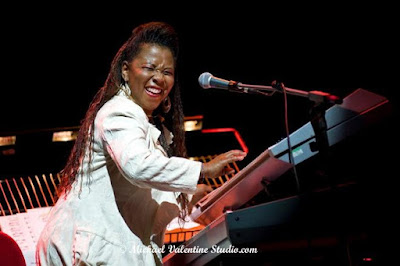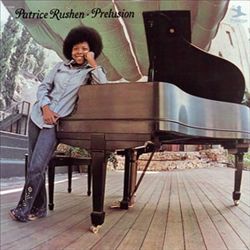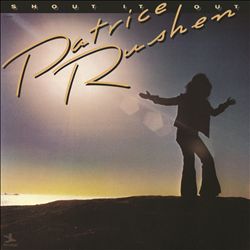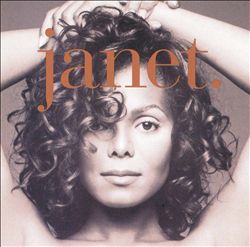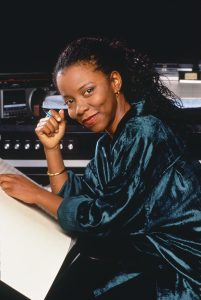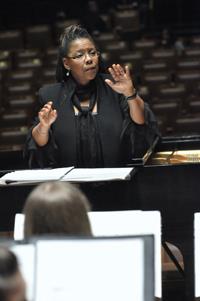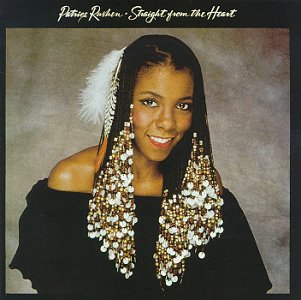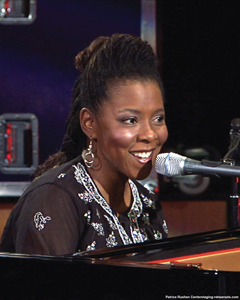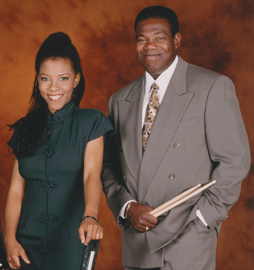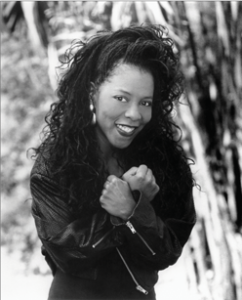AS OF JANUARY 13, 2023 FIVE HUNDRED MUSICAL ARTISTS HAVE BEEN FEATURED IN THE SOUND PROJECTIONS MAGAZINE THAT BEGAN ITS ONLINE PUBLICATION ON NOVEMBER 1, 2014.
ACCESS TO EACH ARTIST CAN BE FOUND IN THE 'BLOG ARCHIVE' (ARTISTS LISTED IN WEEKLY CHRONOLOGICAL ORDER) AND IN THE ‘LABELS’ SECTION (ARTIST NAMES, TOPICS, ETC.) ON THE RIGHT SIDE OF THE HOME PAGE. CLICK ON THESE RESPECTIVE LINKS TO ACCESS THEIR CONTENT:
https://soundprojections.blogspot.com
https://soundprojections.blogspot.com/2019/12/patrice-rushen-b-september-30-1954.html
PHOTO: PATRICE RUSHEN (b. September 30, 1954)
https://www.allmusic.com/artist/patrice-rushen-mn0000743968/biography
Patrice Rushen
(b. September 30, 1954)
Artist Biography by Andy Kellman

Patrice Rushen
Admired by many for her groundbreaking achievements, Rushen has amassed an impressive list of “firsts”. She was the first woman to serve as Musical Director for the 46th, 47th & 48th Annual Grammy Awards, the first woman in 43 years to serve as Head Composer/Musical Director for television’s highest honor, the Emmy Awards and the first woman Musical Director of the NAACP Image Awards, an honor she held for 12 consecutive years. Rushen has also been the only woman Musical Director/Composer for the People’s Choice Awards and HBO’s Comic Relief. She was the only woman Musical Director/Conductor/Arranger for a late-night television talk show. The show was The Midnight Hour, which aired on CBS. In addition, Rushen was named the Musical Director/Composer for Newsweek’s first American Achievement Awards, broadcast from the Kennedy Center and she served as the Musical Director for Janet Jackson’s World Tour, “janet.” As the Musical Director for the award shows, she composed and performed special musical tributes to Michael Landon, Ted Turner, Lucille Ball and Desi Arnaz, The Temptations, James Garner and Leonard Bernstein to name a few. Rushen was named Composer in Residence during the August 2004 sessions at the Henry Mancini Institute.
A classically trained pianist, Rushen has spent a lifetime honing the skills that make her one of the music industry’s most versatile and sought after artists. In 1998, she was again honored by the music industry when her adult contemporary CD, “Signature”, received a Grammy nomination. The CD also received an NAACP Image Award nomination and also landed in the top ten of the adult contemporary jazz charts. The critically lauded, chart topping style she championed in the 70’s and 80’s — a jazz/R&B/pop fusion that combines melodic accessibility with instrumental prowess. This not only became her signature style, but also has continued to be a mainstay of popular radio.
Considered one of the world's top jazz pianists, Rushen has performed with and produced for such esteemed artists as Stevie Wonder, Herbie Hancock, Prince, Lionel Hampton, Carlos Santana, Boys II Men, George Benson, Jean Luc Ponty, Tom Jones, Nancy Wilson, Michael Jackson, Dianne Reeves, Sheena Easton, Stanley Turentine, Joshua Redman and on and on. She has played at some of the world's most prestigious jazz festivals and events.
Rushen has performed with Philharmonic Orchestras and has even written an award-winning symphony. She has served as Composer in Residence with the Detroit Symphony Orchestra for the 2000 & 2001 concert season. She has composed several symphonic works since 2000, each a commissioned assignment by a major orchestra and the World Premiere of each one of the symphonic works has been performed to rave reviews.
She has 14 solo albums to her credit and a greatest hits anthology released on Rhino Records in 1997. She has also recorded two albums with The Meeting, the world-renowned jazz super-group, which includes Rushen, Ndugu Chancler and Ernie Watts.
Currently, Rushen is Chair of Popular Music at the esteemed USC Thornton School of Music. She is also a professor and “Ambassador for Artistry in Education” at the prestigious Berklee College of Music, in Boston where in 2006 she received an honorary doctorate in music. Her focus also includes composing for films, television and orchestras. Rushen still enjoys performing and is often asked to make guest appearances at music festivals around the world and on the recording projects of other artists. She was the host of Clint Eastwood’s Malpaso Productions, “40 Years of the Monterey Jazz Festival,” which has been released on DVD. She was also featured on HGTV’s “Houses of Note” special.
Rushen spends whatever free time she has working closely with the Los Angeles Cultural Affairs Department, the NARAS “Grammy In The Schools” program and other organizations dedicated to establishing music education and mentorship programs for inner-city youth.
For more information, visit Rushen's website www.PatriceRushen.com and the fan site at www.facebook.com/PatriceRushenAuthorizedFanPage
Awards
ASCAP Songwriter's Award ASCAP Award, Most Performed Song in Motion Pictures for 1997 for "Men in Black" Crystal Award, American Women in Film USC Black Student Assembly, Legacy of Excellence Award 4 Grammy Award Nominations NAACP Image Award Nomination
Patrice Rushen
Chair, Popular Music Program
Assistant Professor of Practice
- Program:Popular Music
- Division:Contemporary Music
Biography
Considered one of the world’s top jazz pianists, she has performed with and produced for such esteemed artists as Stevie Wonder, Herbie Hancock, Prince, Nancy Wilson, Sheena Easton, Carlos Santana and Freddie Hubbard. She is an award-winning composer of symphonic music, some of which was commissioned by the Detroit Symphony Orchestra.Rushen received an Honorary Doctorate of Music degree in 2005, from Boston’s prestigious Berklee College of Music for her “outstanding contribution to music and culture” where she is also the Ambassador For Artistry In Education. Most recently, she has been appointed Chair of Popular Music at the USC Thornton School of Music.
Rushen also spends time working with the Los Angeles Cultural Affairs Department, NARAS “Grammy In The Schools” program, the Young Musicians Program in Northern California and other organizations dedicated to establishing music education and mentorship programs for underserved youth.
https://www.berklee.edu/people/patrice-rushen
Patrice Rushen

Rushen, whose nickname is “Baby Fingers” because of her small hands, was born in 1954 in Los Angeles. After high school in South Los Angeles, she earned a degree in music from the University of Southern California. An acclaimed jazz pianist, she has performed with such artists as Herbie Hancock, the late Prince, Carlos Santana, and Stevie Wonder. She has written many pieces of symphonic music, some commissioned by the Detroit Symphony Orchestra.
Rushen was part of a 2015 Berklee Women’s Empower Symposium at Berklee's campus in Valencia, Spain. She was clear about the value she sees in a Berklee music business education: "You can see what (musicians) are going through. You feel it in terms of watching them practice. You understand what happens when they get in front of the microphone.”
Rushen continues to advise and mentor music students, both at Berklee and at the University of Southern California, as an artist in residence and curriculum consultant. She also works with various music-in-the-schools programs and music education programs for underprivileged youth in Los Angeles. Throughout her career, Rushen has woven together many roles and strains of music to make a harmonious whole.
Full Length Bio
The Symphonic Works
https://downbeat.com/news/detail/patrice-rushen-journey-jazz-popular-music-hollywood/P2
Patrice Rushen’s Journey Through Jazz, Pop and Hollywood
by John Murph
July 29, 2019
Downbeat
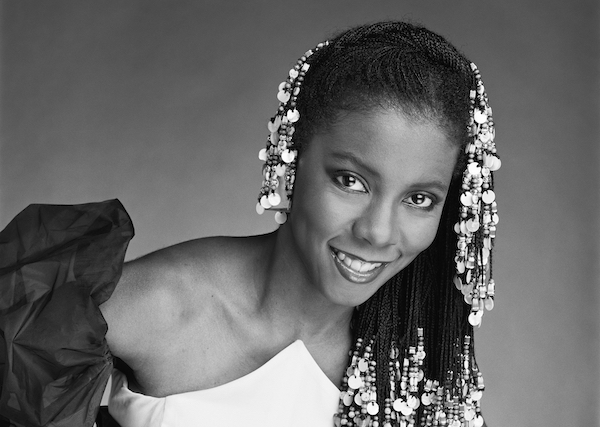 Keyboardist and composer Patrice Rushen is seeing her catalog
reinvigorated with the release of “Remind Me (The Classic Elektra
Recordings, 1978-1984).” (Photo: Bobby Holland)
Keyboardist and composer Patrice Rushen is seeing her catalog
reinvigorated with the release of “Remind Me (The Classic Elektra
Recordings, 1978-1984).” (Photo: Bobby Holland)
“With her generation of playing, she was ideal for the concepts [on the album],” Henderson said. “[It was] really a game changer for me; before I had focused so much on bebop, then working with Mwandishi with Herbie. People like Patrice ... made me shift gears and change my approach, just like how the younger people informed Miles Davis. She was invaluable.”
Rushen continued doing session work through the late ’70s and 1980s—during her commercial peak. She even worked with Prince on his 1978 debut, For You. But after 1984, Rushen left Elektra for a short stint at Arista. The move, though, came with less artistic control, and her sole recording for the label, 1987’s Watch Out!, was severely delayed. Nevertheless, the three years between her final Elektra recording and Watch Out! afforded her the opportunity to fulfill her original dream of composing music for film and TV. She scored Robert Townsend’s 1987 satirical comedy feature, Hollywood Shuffle, then handled music on five episodes of his 1990 HBO comedy show, Partners in Crime.
Just as she helped break gender barriers in jazz through her solo and sideperson work, Rushen was doing the same in the realm of film and TV scoring, especially after she became the first woman to be the musical director for numerous Emmy, Grammy and People’s Choice awards broadcasts, as well as the NAACP Image Award shows throughout the 1990s and into the mid-aughts.
“In my own music, I was allowed to do my own horn and string arrangements, and I was allowed to produce,” Rushen said. “Many of the [activities] that I was doing behind the scenes for my own projects were building on the skill set that I would need ultimately to score television projects and musically direct events.”
While her name recognition in the r&b world attracted Townsend, Rushen recalled that she faced race-fueled resistance when it came to scoring other movies, especially those that didn’t involve a black director or protagonist.
“Many film producers didn’t always have to say it when they were surprised when I walked into the room,” she said. “You could see it on their faces with them thinking, ‘How can a black woman score an adventure film?’ As if I wouldn’t have any idea about what an adventure film would look or sound like. I’d already had long conversations with people like Quincy Jones and Benny Golson, who knew that I would be facing some interesting barriers. They were thoughtful and real about some of things that I would have to consider. But they never said, ‘Don’t do it.’”
As Rushen persevered in the movie and TV industries, she continued doing remarkable session work with the likes of Carrington, Wayne Shorter, Carlos Santana, Mike Clark and Wallace Roney, among others. This summer, she’s touring with the Christian McBride Situation. And at USC, she’s an artist-in-residence and curriculum consultant; at Berklee College of Music, she’s an ambassador for artistry in education.
Even though Rushen continues composing everything from contemporary jazz to pop and orchestral works, she isn’t too interested in signing a new record deal or trying to recapture the commercial pinnacle of her Elektra period. Still, she’s delighted that the recordings are being reinvigorated through Remind Me (The Classic Elektra Recordings, 1978–1984).
“Creating music with the jazz and ’70s dance-oriented r&b sensibilities was relatively new when I started recording. But it was very natural for me because it mostly was made by the generation of musicians that I came from,” Rushen said. “But the record companies were still trying to figure out that marketplace; a lot of that music could fit in many places. Back then, the labels put musicians in certain categories and they never wanted us wandering outside that category. Happily, today’s consumer doesn’t listen to music quite in that same way. They hear what they like and they don’t necessarily worry about what category the music fits in.” DB
https://www.interlochen.org/person/patrice-rushen
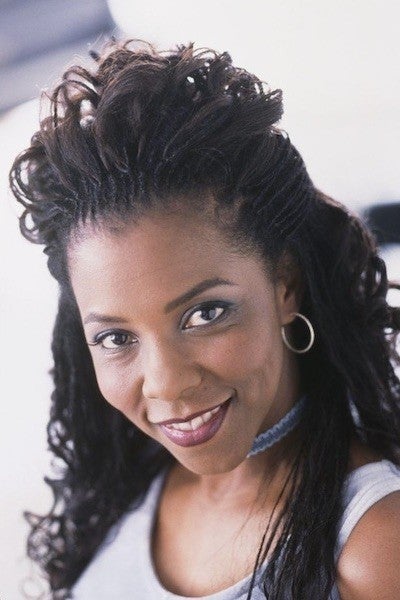
About Patrice
Patrice Rushen is an award-winning musician and composer who is also one of the most sought after artists in the music industry. She is a classically trained pianist who originally found success in the 70’s and 80’s with her signature fusion of jazz, pop and R&B. During this era, she composed and recorded the hit song, “Forget Me Nots,” which has been frequently covered and sampled by other artists.
Rushen is also a four-time Grammy nominee who has composed scores for movies and television. She has been the first female musical director for many of the entertainment industry’s top award shows, which include the Grammy Awards, the Emmy Awards, the People’s Choice Awards, the NAACP Image Awards and HBO’s “Comic Relief V.”
Considered one of the world's top jazz pianists, she has performed with many artists including such esteemed names as Stevie Wonder, Herbie Hancock, Prince, Nancy Wilson, Ndugu Chancler, Carlos Santana, Christian McBride and Lee Ritenour. She is a record producer and an award-winning composer of symphonic music, some of which was commissioned by the Detroit Symphony Orchestra. Rushen is the Ambassador of Artistry In Education at Boston’s Berklee College of Music and the Chair of the Popular Music Program at USC’s Thornton School of Music.
Rushen also spends time working with the Los Angeles Cultural Affairs Department, NARAS Grammy In The Schools program and other organizations dedicated to establishing music education and mentorship programs for underprivileged youth.
https://www.blackpast.org/african-american-history/patrice-rushen-1954/
Patrice Rushen (1954- )
Patrice Louise Rushen is an R&B singer and jazz pianist. She was born on September 30, 1954 in Los Angeles, California to Allen and Ruth Rushen. Rushen is a musical prodigy who began playing piano at the age of three. In 1958 her parents enrolled her in music classes at the University of Southern California Thornton School of Music (USC) at the age of four. By six she was performing classical recitals, and began studying voice. Rushed graduated from Alain Leroy Locke High School in 1972, the same year she won a solo musical competition at the Monterey Jazz Festival.
In 1973, Rushen signed with Prestige Records, and released her first three albums with the label: Prelusion (1974), Before The Dawn (1975) and Shout It Out (1977), while obtaining her BA in Music Education and Piano Performance from USC in 1976. Her next three albums: Patrice (1978), Pizzazz (1979) and Posh (1980), were under the Eleckta Records label. The musician Prince wrote his hit song “I Wanna Be Your Lover” (1979), in dedication to his crush on Rushen, who declined all his romantic requests. Her seventh album, Straight from the Heart (1982), included her top chart single “Forget Me Nots,” and became her biggest selling album. Rushen released her eighth album, Watch Out in 1987, and then moved on the Arista Record label in 1993, releasing her ninth studio album, Anything but Ordinary, in 1994. Her tenth album, Signature, and eleventh album, The Essentials: Patrice Rushen were released in 1997 and 2002 respectively.
Rushen also released four compilation albums: Let There Be Funk: The Best of Patrice Rushen (1980), Anthology of Patrice Rushen (1985), Haven’t You Heard: The Best Of Patrice Rushen (1996), and Forget Me Nots and Remind Me(1996). Her iconic single “Forget Me Nots,” was later featured in the theme song for the 1997 movie Men In Black. Rushen has also produced music for numerous television and major movies including Big (1988), The Steve Harvey Show (1996), and Ruby Bridges (1998).
Rushen was the first woman in 43 years to serve as Music Director for the Emmy Awards (1991, 1992). She was also Musical Director for the Peoples’ Choice Awards (1993), Composer In Residence for the Detroit Symphony Orchestra (2000-2001), Musical Director for the Annual Walk of Fame (2002, 2003, 2004), and the first woman to serve as the Music Director of the Grammy Awards (2004, 2005 and 2006). For twelve years she was Musical Director of the NAACP Image Awards. Rushen was awarded an Honorary Doctor of Music degree in 2005 from Berklee College of Music in Boston, and has been the Ambassador For Artistry In Education at the college since 2007. She has also been the Department Chair of the Popular Music Program at her alma mater, the Thornton School of Music USC since 2013.
Rushen performed with various musicians including Carlos Santana, Nancy Wilson, Michael Jackson, and Boys II Men. Rushen has been married to musical producer Marc St. Louis since January 4, 1986 and the couple have a son, Cameron, and a daughter, Jadyn.
Subjects: African American History, People
https://internationalmusician.org/patrice-rushen/

Patrice Rushen: Keyboardist Inspired by Teaching
May 1, 2016
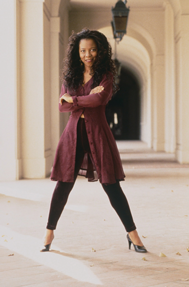
Pianist Patrice Rushen is the ultimate role model for young female musicians. Among her achievements, she was the first female music director for the Grammy Awards (2004-2006), first woman to serve as head composer/musical director of the Emmy Awards, as well as the first female music director of the NAACP Image Awards, PEople’s Choice Awards, and HBO’s Comic Relief.
She’s composed musical scores for Emmy-nominated television shows and movies, plus the feature films Men in Black, Waiting to Exhale, Without You I’m Nothing, and Hollywood Shuffle. She released a total of 14 solo albums that earned her multiple Grammy nominations. Her music is frequently sampled.
The Local 47 (Los Angeles, CA) member is considered one of the world’s top jazz pianists and continues to perform and compose, while also teaching at two of the country’s most prestigious music schools: Thornton School of Music at University of Southern California (USC) and Berklee College of Music. Education has always been a priority for Rushen who recognizes the vital role it played in her life. She says her teachers, including high school music teacher Reggie Andrews, shaped her future in a big way.
“I think I always wanted to become a musician, I just didn’t know the pathway,” says Rushen. She began playing piano at age five, but says when she picked up the flute in middle school, it was life changing. “Being in the middle of all the sound in the orchestra and band, you are conscious of your entrances and exits and the whole production, in the context of a team; that informed me in a different way.”
Rushen says the all-black Los Angeles public school that she attended was ahead of its time. “The high school experiences opened the door for me to see what was possible. We were playing high school orchestra and jazz repertoire, but we were also playing jazz as America’s classical music. That sort of opened up the vocabulary for other forms of contemporary music.”
Students at the high school didn’t just learn about music in a classroom. Field trips included visits to local jazz clubs. “On a Friday night we’d sit in the back,” she says. “Everything sounded really good and the exploration was profound. I heard some of the most amazing jazz musicians in their environment—Cannonball Adderly, Freddie Hubbard, and [Local 802 (New York City) member] Herbie Hancock’s sextet.”
Some of the musicians were even coerced to come out to the school,” she recalls. “This was before jazz was institutionalized, particularly at the high school level. We had a lot of information firsthand. Bandleader Gerald Wilson, who lived in Los Angeles, would send us stuff to play; it was way over our heads, but the idea was for us to see the possibilities. That music pushed us.”
“The idea of being able to play music—all different kinds of music—and watch people react to it was supported by the entire school. It was an incentive to keep your grades up,” she says.
Aside from the music, Rushen’s high school gave her the fundamentals to succeed. “There was very clear consciousness towards a positive identity and the faculty supported that in the way they gave us information. They kept us busy all the time and everything was connected. If you were lucky enough to find your passion, you could learn a lot.”
“Preparation was a big deal,” she continues. “There’s luck, but luck is being prepared for the opportunity. That’s what Reggie used to tell us.”
Rushen’s first such opportunity came in her senior year when her combo won a chance to perform at the Monterey Jazz Festival. Her talents were noted by Fantasy Records, which offered the 17-year-old a recording contract on the Prestige label.
“I wasn’t really interested in a record deal; it wasn’t even on my radar at all,” says Rushen who was getting ready to enter college. “I was going to school, but I did need money.”
Rushen immediately joined the AFM. “I was very happy to join the union; it was like a milestone,” she says. “You have protection by belonging to a larger organization. It supports what we do with rules and regulations.”
Rushen’s very first album with Prestige, Prelusion, had her playing with established artists like Kenneth Nash, Joe Henderson, Hadley Caliman, Hubert Laws of Local 802, George Bohanon and Oscar Brashear of Local 47, plus contemporaries Ndugu Chancler of Local 47 and Tony Dumas.
“I began playing with a lot of different people, especially when the record came out. I would play with a lot of studio musicians who would play the clubs when they weren’t working,” she says. That’s where she met and befriended people like Local 47 members Lee Ritenour, Harvey Mason, and Abe Laboriel.
Though there were offers for her to tour, she was firmly focused on college. Film composing was her goal, but her parents insisted she major in music education. “At the time, USC had no jazz, and certainly no contemporary or popular music major,” she explains. She says the broad curriculum of the music education program served her well later on.
“A music director has to be able to see the big picture and understand the components that will make it happen. You need to know the goal of the presentation and then break it down into what it is going to take to make it happen—casting the correct people and empowering them through your direction.”
“It helps if you are able to work well under pressure and don’t sweat the small stuff,” she adds. “Respect is a given. When people feel like you care about them, they care about you, and want to help you. You also need awareness of a lot of different styles and the resources to pull the essence out of those styles.”
Rushen’s first big job was composing for Robert Townsend’s first movie, Hollywood Shuffle. “He didn’t know who any of the composers were. He went around to different agencies and my name was at the bottom of the list, in pencil,” she laughs. “He knew me because of my records. He said, ‘I want her,’ and the agents were probably horrified!”
“From that movie, I got five HBO comedy specials [as music director],” she says, adding that the role of music director served as a showcase for the skillset she had developed. Word got out, and that led to more work.
While being a woman never kept her from pursuing her ambitions, she’s sure there were jobs along the way that she didn’t get because of gender bias. Then, there were a few people who made the leap that she was a man. “I’ve had some surprised looks because my name doesn’t necessarily give it away,” says Rushen. “There’s the female thing, and then there’s the African American thing that sometimes comes as a surprise.”
Among other challenges, she points to the balancing act that women often struggle with. She advises young women to go for it. “Be strong in your resolve to be as good as you possibly can be. Then, don’t be afraid to let your priorities shift as your life changes and allow yourself the possibility of a family life. Understand that now, more than ever, a career in music involves lots of different layers and different related skills. If you build on that set of skills, you will always find something to do that’s musical. You don’t have to sacrifice any of it.”
As her own career has evolved, she has taken on more teaching roles, but she doesn’t see it as a huge shift from performing. “I don’t really see those things as mutually exclusive,” she says. “When you perform, you are teaching. There is always somebody out in the crowd whose approach could be modified or changed on the basis of a performance they hear.”
“I think teaching is important,” she says. “I’m fortunate to have had great teachers. They were all really open to the communication of music and using the piano as a kind of media, teaching great technique to give you the ability to play anything.”
Rushen is currently chair of Popular Music at Thornton, plus Ambassador for Artistry in Education at Berklee. “All of my different experiences have impacted my methodology and I can call on that as a teacher,” she says. “I’m teaching a music style that I lived—popular music—that’s informed by a certain tradition. It’s exciting for me to find a pedagogy that teaches and celebrates that.”
For Rushen, teaching is as much inspiration as it is instruction. “When you teach you are learning at the same time. I think artists are perpetual students, you know? You are always soaking it up. The inspiration and understanding of what it takes to make art takes you out of yourself. It’s a beautiful thing to be able to communicate on that level.”
Rushen is also involved with youth programs, including USC and Berklee outreach programs, a jazz mentorship program in Los Angeles area high schools, and work with the Young Musicians Choral Orchestra in the Bay Area. “This is an amazing organization that takes at-risk youth and puts them in an environment where they can thrive as musicians,” she says.
During the school year, Rushen’s focus is mostly on her students. Summer allows her to travel and take on other projects. This summer she’ll play some gigs as Patrice Rushen & Friends with Local 47 members Eric Marienthal (sax), Paul Jackson, Jr. (guitar), Reggie Hamilton (bass), and Ndugu Chancler (drums).
“We have some dates sprinkled throughout the summer, which is kind of cool because it allows everybody to do their own thing,” she says.
https://afropunk.com/2019/07/afropunk-interview-patrice-rushen-speaks-her-truth/
Music
afropunk interview: patrice rushen speaks her truth
by Ericka Blount Danois
July 31, 2019
AfroPunk
For people who grew up in the 1980s, Patrice Rushen’s music provided the soundtrack to their basement parties and nightclub forays. Hits like “Forget Me Nots,” “Remind Me,” “Feels So Real,” and “Haven’t You Heard,” ruled the radio and dance floors all over the world. In the ‘90s hip-hop artists sampled and interpolated her hits to make meaningful songs for their generation. Rushen’s hit, “Remind Me” helped launch Mary J. Blige’s career in 1992 when she interpolated it for her song “You Remind Me“ and helped Bed-Stuy’s Junior M.A.F.I.A. get radio play with the Aaliyah featuring “I Need You Tonight.” Rushen’s hit “Forget Me Nots” found a new audience when the sample was used for Will Smith’s 1997 film-inspired hit “Men in Black.”
Known in musician circles by her nickname “Baby Fingers,” for her small but dexterous digits, Rushen is a singer,-songwriter and multi-instrumentalist who plays the piano, keyboards, flute, clarinet, and percussion. Classically trained, she has composed for the Detroit Symphony Orchestra.
Her new compilation album, Remind Me: The Classic Elektra Recordings 1978-1984, was released on Strut this month and features cuts like the 12” versions of “Haven’t You Heard,” “Forget Me Nots,” and “Feels So Real (Won’t Let Go)” and the LP version of “Remind Me,” as well as early classics like “Music of the Earth” and “Let’s Sing a Song of Love.” The compilation album will come in all formats, including a vinyl edition with never-before-seen pictures and an exclusive new interview with Rushen. Years ago Elektra didn’t see any hits on the album “Straight from the Heart.” Rushen had to hire an independent promoter to get the album heard. It would eventually garner a Grammy nomination. Now those hits will reach a whole new audience.
AFROPUNK talked to Rushen about her new compilation, the contemporary artists she likes, and her boundless musicianshipPatrice Rushen - "Forget Me Nots" (Official Video):
Strut Records
July 11, 2019
Strut's new compilation of Patrice 12" versions, sample sources and under-rated LP tracks is out now on a big 3LP set, CD and digital. Order the compilation and browse the Patrice Rushen catalogue here: https://strut.k7store.com/patrice-rushen
Talk about the new compilation, casual fans may not know some of the songs on it.
The music that was recorded during that time period when I was with Elektra was probably the most prolific time for me. Radio used to be such a tremendous, powerful tool. It really made a big difference in people finding me. I was recording before that I was doing some jazz records and then working in the studio – during those years I was able to find what would become my sound from the standpoint of kind of borrowing from the tradition, but also utilizing things that were happening in the present and not being afraid of the future. So basically just doing the music that I like to do and having the resources to be able to do it for those years. We had budgets to work with so I could do strings and horns and I could write and we had a lot of things in our favor. They gave me all the colors in the crayon box to play with.
Let’s talk about your jazz beginnings. You got your big break at the Monterey Jazz Festival, tell me about that.
I was part of a high school band and we entered a competition but there was a combo division also, so our band didn’t win, but the combo I entered did win. So the prize was that you appear in the festival. So that appearance with my combo of 1972, brought a lot of attention and garnered the Prestige [Records] contract — three albums for them.
I know you got a lot of flak from straight-ahead jazz musicians about moving into different genres like R&B and disco, talk about that.
It was a little uncomfortable because there was sort of the implication there that there was some kind of ownership on what, as an artist, is possible for you. And that limitation was uncomfortable to feel. Like, wait a minute, just because I do this well doesn’t mean that’s all I can do well. It doesn’t alter my love or dedication nor my commitment to jazz. At first, I felt a little weird about it, but I wasn’t so weirded out that I didn’t continue to move on. I hadn’t done enough recordings and had enough experiences to feel that I had even found my voice even in jazz. So I was kind of hesitant to sign that first contract. I wasn’t looking for a record deal. But I needed money for school. That was one of the things that prompted me to say yes. I didn’t feel ready by any means. I didn’t have the attachment [to jazz] enough to feel like I was betraying anything because I hadn’t been there long enough. It didn’t stop me from pursuing what it was I thought I wanted to do musically and I had seen how others much more established in jazz who were having some of those same criticisms —[musicians like] George Duke, Herbie Hancock, Chick Corea or anybody that was outside of a particular approach to what that music could be. They handled it — they just kept on moving.
I’m impressed by the fact that you’re a multi-instrumentalist, you arrange, produce, you sing, you write music and all of the different ways that you work in music, what led you down that path?
I thought I wanted to be a composer for film and TV [at first]. My fascination with other instruments was like, “How does that work?” So I could understand better how to write for it. I was a music education major and that was a safe bet for my parents to invest in. You come out of that with the qualifications to teach. You might end up teaching high school band— you also need to know how the instruments work. It was ideal for somebody like me that wanted to write to kind of get into all the different orchestral instruments and understand a little bit about each instrument in each family. It wasn’t wasted energy, it was all wonderful, transferable knowledge
You actually did end up writing and composing for TV and film…
I did, yeah. Robert Townsend actually gave me my first opportunity in terms of a feature film, which was “Hollywood Shuffle” and from that, he got five HBO specials [“Robert Townsend and His Partners In Crime”]. He directed all five. That was the start of everything in terms of music direction. Utilizing all of the tools [I had at my disposal] to help his shows. From those, I got the NAACP Image Awards which I did for 13 years straight. From that, I did the Emmys and later the Grammys. That music direction actually began an offshoot of having all these various experiences as a performer as a producer, as a studio player, as an arranger. All of those things came into play with that.
Were you looking towards anyone to model yourself after — like Quincy Jones or Curtis Mayfield who had worked in composing for TV and film?
Quincy Jones for sure. That’s who I saw moving quietly across all of these different areas which were also areas of interest. I thought it can be done. I knew a lot about Quincy because I was a fan of his writing especially. I knew that he had been a trumpet player, I knew that he worked in all of these bands, his love, and study of classical music, all of the things that helped me understand better his depth and fearlessness. He told me there could be an obstacle course in getting to what I wanted, but to not be afraid of variety and diversity and experimentation and just be really good at it. Those words served me very well.
As a woman in the industry, producing, arranging, playing, what kind of challenges were you having?
Fortunately, I think I had come up in a time when a lot of that groundwork as far as women had been laid. I didn’t have to pioneer any of that. I was in high school, the majority of my peers were men, especially as an instrumentalist. My level of seriousness and commitment wasn’t ever a question. They were my best friends, so they were protective of me. I had a very healthy association with being the only woman, but being supported. And I had that same kind of support at home because my parents were like OK, be good at it and be happy and do the work. And that carried over so by the time that I met, at least to my face any hesitation or resistance based upon other people’s bias or issues, the cat was out of the bag. I was gone already and I kept it moving. I had been given permission to be my best self by people who had my back.
Patrice Rushen - "Haven't You Heard" (12" Version):
Speaking of Elektra, they said you probably shouldn’t write your own material, what was your response to that?
I would do the albums and do the records — we had done our homework. We brought it to the label and they sat there and they were like, “Nah, we don’t hear anything on it.” At first, it was like, you’re kidding me, then we saw they were serious about it. “Haven’t You Heard” and a couple of other records, were poised to be stronger, they became hits at Black radio, for sure. But at the time there was also this push for crossover and you really did need the record company’s help to do that — and they needed to be involved in it and want it for you. And to go after it in a way that would make pop radio respond. And I never had that. When they said that for the “Straight From the Heart” album we just knew that we needed to be proactive and not just need it to be a tax write off for them, but to go after the music. We knew it needed to get in front of the people for them to decide. We figured out what we needed to do just a few weeks of independent promotion. And it turned out to work.
Coming up in the ‘80s with Anita Baker, Michael Jackson, and Prince, and all of these major artists, do you feel like you got your just due as an artist?
It depends on your definition of getting just due. During that time, it could have been that they were just missing it. The result of it was I was allowed to do whatever I wanted to do. So I didn’t have to worry about committees of people deciding what songs were going to go on the record. I didn’t have to worry about people coming by the studio telling me I had to change this or that. We were allowed to organically explore our process to get there. Without interference or involvement. From that standpoint, it was all good. Once the records hit the marketing mechanism at that point we were in place to get the music to the people. If there was a place where I thought I didn’t get my just due it would be there. But that’s not something I was in control over. But the records found their way.
Did you get a chance to explore your classical roots, I know you wrote for the Detroit Symphony Orchestra —were there other areas where you were able to explore that background?
I did one movement of a symphony. I had my cathartic moment and was literally putting it in a box and a friend of mine who happens to be a teacher and composer called me up and said, “What you doing?” I said, boxing up my symphony, no one is ever going to hear it. He said don’t do that, why don’t you enter it into one of these reading contests which I had never heard of before. This group called the American Composers Forum had a contest that my friend was aware of. He said, just enter the first movement and if they pick it, you at least get to hear it. When they heard it, they asked are you going to finish it? And when I finished it, it was read on the Detroit Symphony and they commissioned me afterward to write for them and their youth orchestra. Those kind of sensibilities are part of what had to be applied to writing for film – they are all branches of the same tree. There’s been no wasted time because all of those things have ended up helping the other things.
Who do you like in terms of female singers nowadays?
Ledisi and Lalah Hathaway. A generation of people who are old enough to appreciate the tradition and have done some study and some work understand that they are part of an important continuum, but at the same time they are young enough to embrace and understand the new sensibilities of what the music is and what can be brought to it and enhance it. I see them as two people that stand out most immediately when you talk about singers today.
You’re teaching at USC now as Chair of the Popular Music program, what’s that like?
[I’m] teaching and lecturing a lot. Traveling [and] still playing with people. I just came back from Europe having played with a jazz bassist Christian McBride. We just got back from Europe. I was part of this experimental band called the Christian McBride Situation. It’s comprised of two turntablists, myself, and saxophonists. Great experimentation with a new pallet of colors. I have this new compilation coming out. I am looking to tour with this record. I had never really done that. I had never performed this music in the context that it was under my own name, not since the ‘80s when it came out. Even then I didn’t do a lot of it because you needed record companies’ support and those things were difficult, especially for me.
I am the ambassador for artistry in education for Berklee College of Music. I’m at USC as the Chair of the Popular Music program and that involves the development of a curriculum and a methodology to create a working situation so that kids would graduate and be able to go into the workforce. Developing a program like that has been very exciting.
You’ve been blessed to be able to work in music exclusively for your whole career, talk about that.
I was either teaching someone, playing, writing, performing with, performing myself, collaborating, it’s always been in and around music. There are so many opportunities that are available because we only see the stuff that’s in front, but there’s a whole bunch of stuff that goes on for the things to be in front.
What was it like to work with legendary tenor saxophonist Joe Henderson?
That was my first album [1970’s Prelusion], I had been a Joe Henderson fan for a long time and he happened to be on that label. Just as a rule of thumb they used to pair the new artist with a more established artist that was on that label just to give them a little something. They said here’s a new artist we have on our label, we wanted to ask you if you wanted to record with Joe Henderson. I was like, are you kidding me right now. He appears on that very first album. All my emotions were running through – excited, terrified, he was so gracious. He didn’t talk a lot. Very soft-spoken. I was thrilled because I had been a fan for such a long time and here he is on my very first record. It was unbelievable.
There are aspects of the music that still resonate and are still vibrant. They are focusing on the vinyl. Its a whole package, like a two-album set. There are pictures I’ve never seen before. The packaging is beautifully done. It feels really good that this music is resurfacing and Strut has put together a beautiful package for it and this time around with it being given this kind of attention.
https://albumism.com/interviews/forever-straight-from-the-heart-a-conversation-with-patrice-rushen
![]()
Forever Straight From the Heart: A Conversation with Patrice Rushen | Interview
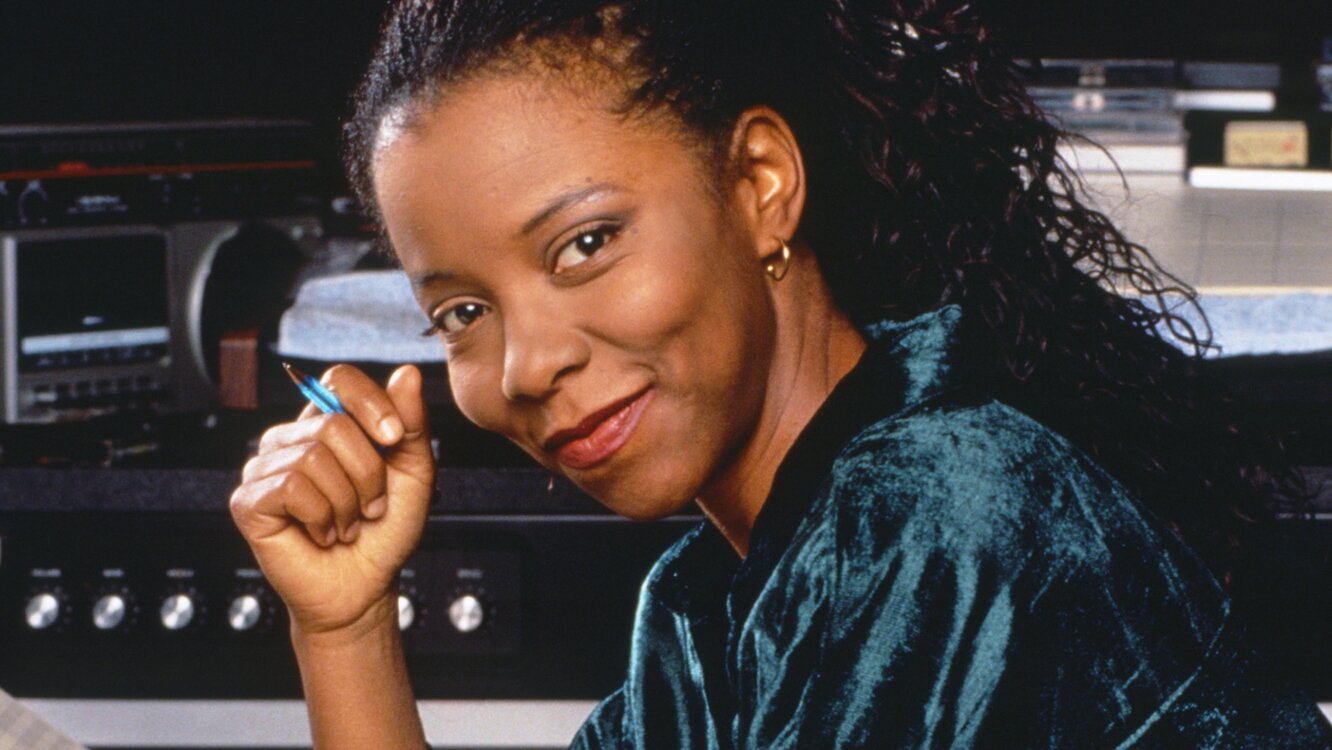
Photo: Courtesy of the Artist
If hearing Patrice Rushen’s name doesn’t inspire multiple states of awe, then there may be large gaps in your music knowledge. Thankfully, both her longtime loyalists and those who may be new to her many musical charms will have the opportunity to celebrate her legacy tomorrow evening when she fittingly receives the Trailblazer Award during the Salute THEM Awards ceremony.
Orchestrated by Café Mocha Radio and presented by Toyota and AARP in conjunction with Black Music Month, the Salute THEM Awards honors the musical and cultural achievements of an impressive group of vanguards that includes Rushen, June Ambrose, Earth, Wind & Fire, Dr. Bobby Jones, Jamal Josef, Darlene Love, Ludacris, Sly Stone, and Bille Woodruff. Taking place at the National Museum of African American Music in Nashville and hosted by Café Mocha Gracie Awards Winners Loni Love, Yo-Yo, and Ain’t Too Proud – The Life and Times of The Temptations Broadway star Saint Aubyn, the event can be streamed via SaluteTHEMAwards.com on Sunday, June 6th at 7:00pm EDT and will be available via broadcast on BNC TV at 10:00pm EDT.
A prodigy since adolescence when her advanced chops as a pianist won her a three-album deal with jazz label Prestige Records, Rushen handily impressed some of the most elite fans within the genre. Just when she had captivated that audience, she made an unprecedented shift, establishing herself as a mainstay vocalist in R&B, dance, and funk. Her massive talent allowed her to live, breathe, and swim freely between multiple musical worlds.
"Remind Me" (Remastered):
Her angelic, forever-young voice came into its own during her tenure at Elektra Records. Champion chart ascenders and radio staples like “Forget Me Nots,” “Remind Me,” “Haven’t You Heard,” and “Feels So Real (Won’t Let Go)” have since taken on a second life being sampled by Will Smith, George Michael, Mary J. Blige, Kirk Franklin, Mobb Deep, Queen Latifah, Faith Evans, and literally hundreds more.
The indefatigable singer-songwriter-producer has navigated her way into multiple arenas extending far beyond the stage. She’s scored film and television, served as music director for Janet Jackson’s janet. Tour from 1993-1995, as well as the Primetime Emmy Awards, the NAACP Awards, and the GRAMMY Awards. She is now chair of the Popular Music Program at USC’s Thornton School of Music and also an ambassador for Berklee College of Music.
It is only fitting that this veteran has committed herself to making sure that the lessons of her illustrious career get passed on whether through her students or her streaming. The next generation of musicians and artists will not be found wanting—not on her watch. Trust that she shared more wise tidbits than we could fit into this interview prior to being honored at tomorrow’s Salute THEM Awards.
My first question for you is…what is your least favorite question to be asked in interviews?
[Laughs] My least favorite question is “So, how did you get started?” Because that question is so easy to get answers to online and whatever like that.
You're being honored at the Salute THEM Awards this year. What does it mean to be recognized as a musical vanguard in this way?
It's a major thing for me. You're doing what you're doing ‘cause you love it. It brings you a certain kind of joy. Hopefully, that joy is translated to other people. So, when other people actually do recognize that? It means people have been paying attention! We all see people who do [the] meteoric rise to the top. But the ones that are just slow and steady, but constant? Those are my heroes and sheroes. To feel like, for somebody else, I might be that one? It's awesome.
"Let the Music Take Me"
If you could, in turn, give this honor to someone else, who would you lift up?
Oh my gosh. We'd have to cut that award up into so many little bits and pieces and bites, man! Everybody that I've ever worked with has taught me something. Some of them are not musicians!
A lot of the artists—we're pretty insecure. We feel everything on 10. Everything is big. Everything is huge. If it's a good cup of coffee, it's a spectacular cup of coffee. If you're having a bad day, you're ready to go out and put your head in the sand. A big part of our development is in learning how to move that energy through our music or whatever our particular art expression is. And you need other people to help you with that.
So, my parents, my peers, those who are musicians, the people I met along the way, publicists, radio (especially Black radio), disc jockeys, I guess we would have called them back in the day, radio personalities…
What do you think every artist should learn in the entertainment industry?
A long time ago, Quincy Jones called me to the side. I must've been about 15 years old and he said, “What do you want to do?” And I said, “Oh, sir, I want to write, I want to write for film and TV.” He looked at me and said, “Wow, first of all, you're going to have to be real, real good.” Which I thought—even at 15—that was a little odd because why wouldn't you be trying to be good?
Then he said, “And you need to diversify. You need to find out as much about all of the things that affect what it is you want to do…as you possibly can.” That went over my head. What he was trying to say was—your talent won't be enough. You're gonna have to pay attention to all of the other things that surround that.
Your episode of the documentary series Unsung was unique in that it didn’t have you going to jail, having a wardrobe malfunction, or throwing piano benches at somebody during rehearsal. What is it like having such a long career be drama-free?
Great for me! Worrying for Unsung though. Their format is mostly stories that seem like it's going to be running off the rails, and then it comes back. They don't have a lot to say about the “slow-and-steady.” The hard worker, the one who tries to surround themselves with excellence, where the whole goal was to remain drama-free so that we could get where we wanted to go. What we [do] actually inspires and helps other artists, and for some people that is so boring. [Laughs]
You’re known for your big hit “Forget Me Nots” from Straight From the Heart (1982). What’s the story behind it?
“Forget Me Nots” is on that Straight From the Heart album, which also had “Number One” on it, “Remind Me,” a lot of things that ultimately became very much associated with me, but [Elektra] didn't “hear” this album. The record company was like, “Well, we don't know what we're going to do with this.” And we were horrified!
We had done our homework. We played some of those cuts in clubs and had seen the reaction. We said, “How can they be so out of touch with what is gettin’ ready to happen?”
We pooled our limited resources and bought three weeks of independent promotion. You don't want a record person going in with a stack of recordings and yours is on the bottom because the record company don't really believe in it. You want a chance! If people don't like it, you can't make—especially Black people—you can't make us like it. Black radio had always been really, really important for me. And we did not want to lose this opportunity. And people loved it and it took off.
I was listening to “What's The Story” from Before The Dawn (1975) recently. I thought, “Wow! Patrice sounds different!” I assumed that was you singing, but it’s not. Who is the vocalist?
Josie James. We were in a group together called Red Beans & Rice! We would play house parties and dances and functions and stuff like that. I'm trying to get the plan together, write the tunes, and I didn't feel that confident singing, especially around somebody that was a friend of mine who I knew could really handle all these different kinds of music. When we did “What's The Story,” that's the voice that I heard. And it came out of us working so often in that group. She has a tremendous voice and is a tremendous person.
When did you get the confidence to show up in the front as a singer? You didn’t start singing on your records until Shout It Out (1977). And was the desire to sing part of your leaving Prestige and moving on to Elektra?
Great question. On that last album for [Prestige], I did a song called “Let Your Heart Be Free” and I just went for it! It was my last album for them and I wanted to do something [different]. I wanted to play bass. I played bass on that song. And I decided, okay, well, I'll sing also. Just because! So, I did.
When Elektra came around, they locked into asking me to sing more—which I thought was the biggest joke going—but okay. I know all these great, really great singers, and I'm like, “Really?! But okay!”
Nearly 25 years have passed since you did your last album, the GRAMMY-nominated Signature (1997).
Really??? God! That’s a long time!
What is your interest in recording again whether as a vocalist or an instrumentalist?
I'm interested in recording again. When I stepped back, the music business was going through a tumultuous change. I wanted to see where things settled, out of the ways in which people would receive their music. And I knew that the categories and the lines being blurrier as opposed to them being so strict was going to be a positive for me. I just didn't know when.
You're gesturing and I'm thinking, “it's Baby Fingers right in front of me!” Who gave you that nickname?
My first lawyer! We were trying to set up a corporation and he said, “You need a logo.” Looking around the room, I'm going, “well, I don't know.” I speak with my hands and he just [paused]. “Lemme see your hands!” So that's where it came from: Baby Fingers!
Someone asked about your celebrity crush in an interview and you said it's Prince. From what I understand, “I Feel For You” was written for you, and “I Wanna Be Your Lover” was written about you. So, if you had mutual crushes, what kept a romance from happening?
Wow. What did I say? [Laughs]
I think that our friendship was really based in the music. A recording engineer of my project said, “I need you to meet someone that has the same kind of interest as you in terms of playing a lot of instruments, writing material, introspective about the industry, and is a fan of yours, and wants to meet you.”
We met over the phone and the whole idea of what he was about musically was intriguing. He was very curious about the music and that's what started our friendship. Now, because we were contemporaries, and because this industry has always been kind of set up with the what-ifs, “What if so-and-so was with so-and-so?”, I think that may have been a little bit more perpetuated than I was aware.
I find out probably the same time you find out! You open up the CD or whatever, and you're reading the “Best Of” [liner notes] and find out a particular song was written about you or for you, or with you in mind or something like this. That came as news to me!
Patrice Rushen - "Never Gonna Give You Up"
Strut's compilation of Patrice Rushen 12" versions, sample sources and under-rated LP tracks is out now on a big 3LP set, CD and digital.
What was your friendship with him like?
Our relationship was always kind of distanced because we didn't run into each other that often. But when we did, we used to have some pretty deep conversation. And the one I remember and respected the most was before Purple Rain came up. He was terrified.
He was really concerned about this movie: “I may have bitten off more than I can chew on this one.” I said, “Well, did you do your best?” He said, “Yeah.” I said, “Well then that's all that's all you can do.” And he said, “Well, from your lips to God's ears.” I said, “If this is about your path and in your truth, you're going to be okay.” Boy, the thing came out and the rest is history!
There was one other time when I had a conversation with him actually at the GRAMMYs. My first GRAMMY Awards as [music] director was the show that he and Beyoncé opened. Because of the scope of—just the spectacle of this show, the bigness of it and everything…he wanted to rehearse and get things right, and so [did] she. Very hard worker. Wants it right. Doesn't mind doing things over and over until it's just so. I admired that about both of them.
Some of the music was prerecorded so that it would be consistent. This is very, very common. Especially when it’s going out live like that, in a basketball arena! It's not a concert arena. So, you want to control the sound, blah, blah, blah. This particular day, the producer just thought, “I know we've rehearsed it like this, but I want to do it [live] over the air.” That’s kinda dangerous on the day of the show! He said, “I want you to go and convince Prince that that's what he should do.”
I’m knowin’ this is not a great idea!
And on the way to the stage to talk to him, I’m going, “Okay, so how—how do I deliver this message, knowing that I'm getting ready to talk to my friend about doing something that wasn't a great idea?” So, I went to him, delivered the message, and he says, “What do you think I should do?”
I said, “I think you should follow what you feel is right. Just remember no one else is set up for this right now. Nobody. It can be done, but you could be rolling the dice in a situation [where] others are not prepared.” He got it.
That's the relationship that we had. “What do you think I should do” doesn’t come out of the mouth of a major star who has done a thousand shows, loves playing live, but knows that this is one of the biggest nights on television and the world stage. He got one shot and he gon’ ask what do I think? With all of the other bravado…at his core, he was an artist. He wanted opportunities to express himself in the clearest ways that he could.
I know that he listened to a lot of the music that I did because I could hear little quotes and stuff here and there, now and again. That's wonderful to feel like you touched somebody in that way. And whenever I would see him, he was always polite and cordial and inquisitive.
Speaking of quoting your music, your work has been sampled a lot over the years. What are some of your favorite uses of your work?
One that stands out is Kirk Franklin’s use of “Haven’t You Heard” in “Looking For You.” I think they killed that. They killed it. Absolutely killed. A friend of mine was playing with him at the time, called me on the phone and said, “Listen to what we're working on.” I was like, “OMG!” That was fantastic. And they did a great job. That piece in and of itself stands alone as a very dynamic and wonderful homage.
Fast forward from there and I got this cassette in the mail. (You remember cassettes?) A motion picture company said, “Please give us a call about your one-time payment for the small use of your song ‘Forget Me Nots’ for this new film called Men In Black starring Tommy Lee Jones and Will Smith.” I listened to it and I said, “Small sample?! I don't think so!”
So, remember the lawyer who named me Baby Fingers? He says, “Okay, this is different. This is not a sample where you're extracting maybe four bars or eight bars that recur. This is your song and you should be sharing in the publishing. Half of this song should belong to you and the writers of ‘Forget Me Nots.’”
This song which almost didn't see the light of day has this brand-new life in Men In Black. That franchise continued to use it up until maybe the very last one. There's a lesson in that for all of us. These songs and these ideas are worth something.
With the advent of technology and the way the business has evolved, we've gotten to the point where, as musicians, we're giving that away. On watch is the idea of protecting our music and offering what you can to ensure that the artists who are writing the music you love have the ability to continue to do so.
What are your five favorite albums of all time?
Woo!
I know!! I apologized last time I asked the question because—depending on how much music you listen to—it's hard to quantify.
Alright? I'mma try. I'mma try. They're not necessarily in order, okay?
That's fine. That's fine.
It's just what I think of right now. Sly Stone. There's a Riot Goin’ On? Pivotal. Game changer. Songs in the Key of Life. Stevie Wonder? Pivotal. Game changer. Speak Like a Child. Herbie Hancock. Pivotal for me, especially as a pianist…understanding and learning and going deeper into what it was that attracted me to jazz. Miles Davis. The Sorcerer. The improvisation in that particular group with Herbie Hancock, Tony Williams, Wayne Shorter, Ron Carter and Miles was like wow. Those were like our superheroes.
How many albums was that?
Sly, Stevie, Herbie, Miles is four.
And then I'll say, the other one for me, I'll say is Minnie Riperton and Charles Stepney. Come To My Garden.
I loved your collaboration with her on the posthumous album Love Lives Forever. Did you know her when she was alive?
Not well. We met a couple of times. Huge fan of her voice. Even before all of the big hits. Rotary Connection? I was like, whoa. And I was always attracted also to the writing. That's why I mentioned Charles Stepney because the songs on that particular album Come To My Garden are like art songs informed by Black aesthetic. And then this voice on top of that? And it was like an instrument in and of itself? Oh man. I get worked up talking about it.
Again, the thing about those artists and these albums that I've mentioned, Mark, is that these are things that gave our generation permission to not be worryin’ about the category so much. Don't get so caught up in what it is or what it isn’t. Make it great and make it yours.
And Sly, just ‘cause that album is so funky, it hurts. It’s so funky. [Laughs]
Any thoughts before we close here?
Let me offer, if I may, a shout out. I'm so excited and blessed to have received [the] Trailblazer Award for this year, so thank you so much to the Salute THEM Awards, sponsored by AARP and Toyota. You'll be able to see the shows streamed on June 6th, coming right up. It's at 7:00pm EDT. So y'all can do the math in the rest of the world. And you can also get information from www.SaluteTHEMAwards.com. So, I want to make sure I mention that so that any of you who want to tell a few other people how much fun we had today, they'll know why!
And just so we know, what's your official social media information?
Yes! Thank you. you can find me on Instagram at @PLR88keys. You can also go to my website and I invite you guys to do that because that's really where you're going to get so much added information and maybe find some things about me that you didn't know. That's www.patricerushen.com. And you can find me on Facebook and Twitter. Yeah.
I hope everybody's doing well and getting over all of the angst and issues and crazy that has been a part of our world. And hopefully it motivates us. Having come through it as difficult as it may have been, we are all bonded and stronger for it. Thank you for being such wonderful and loyal fans. And for those of you who are new, welcome! New fans, come up!
Oh, absolutely. I think hip hop and R&B are going to make sure that you keep getting new fans. Again, thank you for this time, and I hope you have a great and blessed day. And then until we see you somewhere again…
Alright! Peace!
Editor’s Note: This interview has been edited from the original transcript for length and clarity.
Art Is Story: Conversations with Art Makers | Patrice Rushen:
November 29, 2022
Patrice Rushen

Patrice Louise Rushen (born September 30, 1954) is an American jazz pianist and R&B singer.[2] She is also a composer, record producer, multi-instrumentalist, songwriter, and music director.
Her 1982 single "Forget Me Nots" received a Grammy Award nomination for Best Female R&B Vocal Performance. The instrumental "Number One" from her album Straight from the Heart earned an additional Grammy nomination for best instrumental. Her 12th album Signature also received a Grammy nomination for best instrumental in 1998.[3]
Rushen also serves as an ambassador for artistry in education at the Berklee College of Music and the chair of the popular music program at the USC Thornton School of Music.[4][5]
Biography
Rushen is the elder of two daughters born to Allen and Ruth Rushen (former Director of California Department of Corrections).[1] Patrice was three years old when she began playing the piano, and by the time she was six, she was giving classical recitals.[6] In her teens, she attended Locke High School and later earned a degree in music from the University of Southern California.[7]
After winning a competition at the age of 17 that enabled her to perform with her band at the Monterey Jazz Festival, Rushen signed with the Prestige label, releasing three albums with them – Prelusion (1974), Before the Dawn (1975), and Shout It Out (1977).[6][8] In 1978, when she was 23, she began recording with Elektra.[6]
Rushen married Marc St. Louis, a concert tour manager and live show production specialist,[9] in 1986.[10] They have one son, Cameron and one daughter named Jadyn.[10][11] The name of her publishing company, Baby fingers Inc., is pulled from her nickname Babyfingers for her tiny hands. In 2005, Rushen received an honorary doctorate of Music degree from Berklee College of Music. She is the chair of popular music at USC and the ambassador of artistry in Education at the Berklee College of Music.[12] She has served as the film composer for numerous movies, television shows and documentaries. She has been a member of jazz fusion band CAB, The Meeting (GRP Records) with Ndugu Chancler, Alphonso Johnson and Ernie Watts.[13] Rushen is also a music director, having worked on various television events as well as Janet Jackson's world tour 'Janet'.
Her song "Hang It Up" was featured on the 2005 video game Fahrenheit.[14]
Cultural impact
Rushen's songs are sampled often in other artists' music. The chorus from "Forget Me Nots" was used as the music for the 1997 song "Men in Black". Rushen was credited as writer and composer, along with Will Smith and Terri McFadden. The same chorus can be heard in George Michael's song "Fastlove". "Forget Me Nots" previously found its way into the trampolining scene in the film Big. Her song "Haven't You Heard" was sampled in Kirk Franklin's Looking For You from the Norbit soundtrack. In 2021 her song "Forget Me Nots" was used in a dance challenge on TikTok.[15]
Rushen was the first woman to serve as music director for the 46th, 47th, and 48th Grammy Awards. She was the only woman music director/conductor/arranger for a late-night show titled The Midnight Hour, which aired on CBS in 1990.
Awards
Grammy awards
Rushen has received three Grammy nominations.[3]
Year Category Nominated work Result
1983 Best R&B Instrumental Performance "Number One" Nominated
Best R&B Vocal Performance, Female "Forget Me Nots" Nominated
1998 Best Contemporary Jazz Performance "Signature" Nominated
Other awards
- Number One Record "Feels So Real", Radio & Records (R&R) National Chart - Writers: Patrice Rushen & Fred Washington, 1984
- ASCAP Songwriter's Award, 1988
- USC Black Student Assembly, Legacy of Excellence Award, 1992
- Crystal Award, American Women in Film, 1994
- ASCAP Award, Most Performed Song in Motion Pictures for 1997 for "Men in Black," 1998
- NAACP Image Award Nomination for Best Contemporary Jazz Recording for “Signature”, 1998
- Honorary Doctorate Berklee College of Music, 2005
- The California Jazz Foundation NICA award for lifetime achievement, 2019
- The Ramo Music Faculty Award, 2020
- Trailblazer Award, Salute Them Awards, 2021
- Hamilton Garrett Center for Music and Arts (Boston, MA), Make Them Hear You Award, 2023[16]Appearances
With CAB
- CAB 4 (Favored Nations, 2003)
With Carlos Santana and Wayne Shorter
- Live at the 1988 Montreux Jazz Festival (Liberation Entertainment, 2007)
With The Meeting
- The Meeting (GRP, 1990)
- Update (Hip-Bop, 1995)
With Kenny Burrell
- Heritage (AudioSource, 1980)
With Herbie Hancock
- Lite Me Up (Columbia, 1982)
With Eddie Henderson
- Heritage (Blue Note, 1976)
- Comin' Through (Capitol, 1977)
With Sadao Watanabe
- Autumn Blow (Inner City Records, 1977)[26]
With Jean-Luc Ponty
- Upon the Wings of Music (Atlantic, 1975)
- Aurora (Atlantic, 1976)
With Letizia Gambi
With Wallace Roney
- A Place in Time (HighNote, 2016)
With Cindy Blackman
- Another Lifetime (4Q, 2010)
Filmography
|
|
Musical directing
Television awards and specials
- The 48th Annual Grammy Awards (2006, musical director)
- The 47th Annual Grammy Awards (2005, musical director)
- The 46th Annual Grammy Awards (2004, musical director)
- The 10th Annual Walk of Fame Honoring Smokey Robinson (2004, musical director)
- The 9th Annual Walk of Fame Honoring Aretha Franklin (2003, musical director)
- The 8th Annual Walk of Fame Honoring Stevie Wonder (2002, musical director)
- People's Choice Awards (1993, musical director)
- The Best of Robert Townsend & His Partners in Crime (1991, musical director)
Television series and miniseries
- The Midnight Hour[note 1] (1990)
- The Women of Brewster Place (1989, special musical consultant)
- Partners in Crime (1988, musical director)
Albums
- No Strings by Sheena Easton (1993, record producer)
Sources
- Hogan, Ed. "Patrice Rushen". VH1. Retrieved May 9, 2007.








